The Cholesterol Myth
This post is by Craig, Maria’s husband. I am a science geek but like to research and put things in easy to understand format. In this post (and the next one) I will break down the whole issues of “The Cholesterol Myth”. There is a hypothesis that says eating food high in cholesterol and saturated fat causes high cholesterol in your blood which causes coronary artery disease (CAD). It’s called the Lipid Hypothesis. This is what the majority of Doctors and Cardiologists believe. So lets break it down piece by piece and expose the myths that lie in every leg of the Lipid Hypothesis.
What is Cholesterol
First, lets talk about Cholesterol and what it’s purpose is in our bodies. Cholesterol is our bodies main repair mechanism. It comes into action whenever there is inflammation to repair that inflammation. Saying you need to lower cholesterol is killing the messenger. It’s like killing half the firefighters that come to put out a fire. It won’t help put out the fire or what caused the fire, it will make it harder.
There are two main forms of cholesterol. Low-Density Lipoprotein (LDL) and High-Density Lipoprotein (HDL). In the Lipid Hypothesis it is generally thought that HDL is the good cholesterol and LDL is the bad cholesterol. The general theory is that if your total cholesterol is above 200, you are in danger and need to go on a statin drug to lower your cholesterol (more on that later). But the total cholesterol is HDL+LDL. So too much of a good thing (HDL) can lead to a bad thing (too high total cholesterol)? This is the first of many contradictions of the Lipid Hypothesis. If you start digging into the science, it get even more confusing. Recent studies have shown that there is Bad Bad cholesterol (small dense LDL), Good Bad cholesterol (large fluffy LDL) and intermediate LDL (which can be good or bad depending on when they occur). Then there is Good Good cholesterol (HDLs 1 &2) and Bad Good cholesterol (HDL 3). Now the Total Cholesterol number looks even more convoluted.
Saturated fats and cholesterol make the membranes of the cells firm—without them the cells would become flabby and fluid. Cholesterol and saturated fat act as the conduits enabling all of the cells in our body to communicate. Cholesterol and stiff saturated fatty acids form “lipid rafts”, which make little parking spots for every protein in the membrane and enabling it to perform its functions. Without cholesterol and saturated fats, our cells would not be able to communicate with each other or to transport various molecules into and out of the cell. As a result, our bodies would not be able to function the way they do. The human brain is particularly rich in cholesterol: around 25 percent of all body cholesterol is accounted for by the brain. Every cell and every structure in the brain and the rest of our nervous system needs cholesterol, not only to build itself but also to accomplish its many functions. (source)
One of the most abundant materials in the brain and our entire nervous system is a fatty substance called myelin. Myelin coats every nerve cell like the coating on electric wires. It provides nourishment and protection for our brain and nervous system. People who lose this protective coating develop a condition called multiple sclerosis (MS). Myelin is composed of over 20% cholesterol.
Many of the hormones in our body are made from cholesterol (testosterone, progesterone, pregnenolone, androsterone, estrone, estradiol, corticosterone, aldosterone and others). In our stressful modern lives we consume a lot of these hormones which can lead to Adrenal Fatigue. In addition every sex hormone in our bodies is made form cholesterol. So without it, we wouldn’t be able to have children.
Our livers make bile out of cholesterol, so even digestion and our ability to absorb fats and fat-soluble vitamins is dependent on cholesterol. Cholesterol also plays a vital role in our immune health. And most importantly (back to our original point), the liver sends cholesterol to the site of an injury or inflammation. This is one of cholesterol’s most vital roles. Cholesterol and fats are essential in removing toxins and healing. This is why blood cholesterol levels go high after a surgical procedure. The liver is sending out lots of LDL cholesterol to clean and heal the cuts and damage from the surgery. LDL also goes up when dealing with an infection, bacteria or viral attack.
Blood cholesterol levels of between 200 and 240 mg/dl are actually quite normal. In older women, serum cholesterol levels greatly above these numbers are also quite normal, and in fact, they have been shown to be associated with longevity. In this study, it is shown that the higher the number, the less mortality by all causes, heart disease, cancer, etc. So as you can see cholesterol and saturated fat are vital to our bodies and our health. We wouldn’t be able to live without them.
Myth 1: Eating Cholesterol and Saturated Fat leads to High Cholesterol
This is actually pretty easy to dispel. The longest-running study and perhaps most significant study on heart disease is the Framingham Heart Study (followed 15,000 participants over 3 generations). It has shown that dietary intake of cholesterol has absolutely no correlation to heart disease. This chart shows the results and as you can see there are nearly identical rates of heart disease among men and women regardless of their cholesterol intake (above or below average).
The Framingham study also found the same to be true about saturated fat intake:
“In Framingham, Mass., the more saturated fat one ate, the more cholesterol one ate, the more calories one ate, the lower the person’s serum cholesterol. The opposite of what… Keys et al would predict”
Even Ancel Keys, the father of the Lipid Hypothesis said in 1997:
“There’s no connection whatsoever between the cholesterol in food and cholesterol in the blood. And we’ve known that all along.”
Myth 2: High Cholesterol causes Coronary Artery Disease (CAD)
So this is where we are killing the messenger. Yes, high cholesterol is present, but it is not causing the problem, it is there to fix the problem (inflammation, more on that in our next post). There are numerous studies that dispel this myth. First, there is no correlation by country. Here is a video that shows how countries with the highest cholesterol levels (like Switzerland) have low heart disease rates and people like the Australian Aboriginals who have one of the highest rates of heart disease also have one of the lowest blood cholesterol levels.
Another example is the Conference on Low Blood Cholesterol which reviewed 11 major studies including 125,000 women and determined that there was absolutely no relationship between total cholesterol levels and mortality rate from cardiovascular or any other causes (source).
There are also more than 40 trials (source) performed to determine whether lowering cholesterol levels can prevent heart disease. In some trials the rates went up, others they went down. But on average, when all taken together, just as many people died in the groups taking cholesterol lower drugs as those with no treatment.
Lastly and possibly most alarming is that there is evidence that points to lower cholesterol leading to higher death rates. Again form the Framingham Heart Study:
“There is a direct association between falling cholesterol levels over the first 14 years and mortality over the following 18 years.”
So as cholesterol levels fell, death rates went up. The Honolulu Heart Program study had 8,000 participants and in their 2001 publication:
“Long-term persistence of low cholesterol concentration actually increases the risk of death. Thus, the earlier the patients start to have lower cholesterol concentrations, the greater the risk of death.”
I will end this section by quoting Malcolm Kendrick from 2005 on a different study: “The great ship Cholesterol-Lowering has ripped its guts out on the harsh rocks of evidence, but still it does not sink”
Statin Drugs
So as you can see above, lowering your cholesterol levels may actually increase your chance of dying. So with all this modern science and data showing that the Lipid Hypothesis is wrong in every way, why do doctors still believe in it and prescribe cholesterol lower drugs (statins)? Well I think it is important to point out that doctors on average receive 23.9 hours of nutritional education in medical school! (source) That’s right, with 4 years of pre-med, 4 years of medical school and 4 years of residency, the average doctors spend less than 24 hours getting nutritional education. This is a major problem in general but especially in this case because one of the primary factors in CAD is nutrition. More on this in my next post.
I also think it is important to mention that statin drug pharmaceutical sales are over $35 Billion worldwide in 2011 (source). This is an industry force that isn’t going away without a major fight. Not only that, but they are trying to expand their customer base. Yes, the American Academy of Pediatrics recommended giving kids as young as 8 years old statins!! (source)
Statin drugs should never be taken by women, as preventative or for post heart attack (source by Dr. Stephen Sinatra – audio). Epidemiologist David Jacobs of the University of Minnesota, Twin Cities, brought together researchers from 19 studies around the world. He reported to National Heart, Lung, and Blood Institute (NHLBI), which in 1990 hosted a conference to discuss the issue. When investigators tracked all deaths, instead of just heart disease deaths, the cholesterol curves were U-shaped for men and flat for women. In other words, men with cholesterol levels above 240 mg/dl tended to die prematurely from heart disease. But below 160 mg/dl, the men tended to die prematurely from cancer, respiratory and digestive diseases, and trauma. As for women, if anything, the higher their cholesterol, the longer they lived (source).
On top of all of this, the side effects of statins are numerous and serious. Statins are marvelous cholesterol killers because they intercept about 20 different biochemical pathways; one of those pathways is for CoQ10 and CoQ10 is one of the most important nutrients to protect your immune system. CoQ10 is also very good for heart health. Isn’t it ironic that this drug that is supposed to protect you from heart attacks severely damages one of your bodies biggest mechanisms for maintaining a healthy heart (CoQ10)? I won’t go into all the side effects (erectile dysfunction, muscle cramps, heart failure, cancer, loss of memory or lowered thinking ability, muscle pain or fatigue, neuropathy, etc) as there are many other sources for that information.
So what issues with cholesterol can be of concern? There are four main causes of cholesterol problems, Stress, Smoking, Physical Inactivity, and Poor Nutrition. In our next post (located Here) we will talk about what really causes coronary artery disease and what we can do about it.
Cholesterol On the Ketogenic Diet

Are you interested in eating the ketogenic diet but are concerned about your cholesterol? Did your doctor warn you about cholesterol going up if you eat too many eggs? What is the true cause of heart disease and what does high cholesterol mean?
In this YouTube video Craig discusses all things cholesterol related.

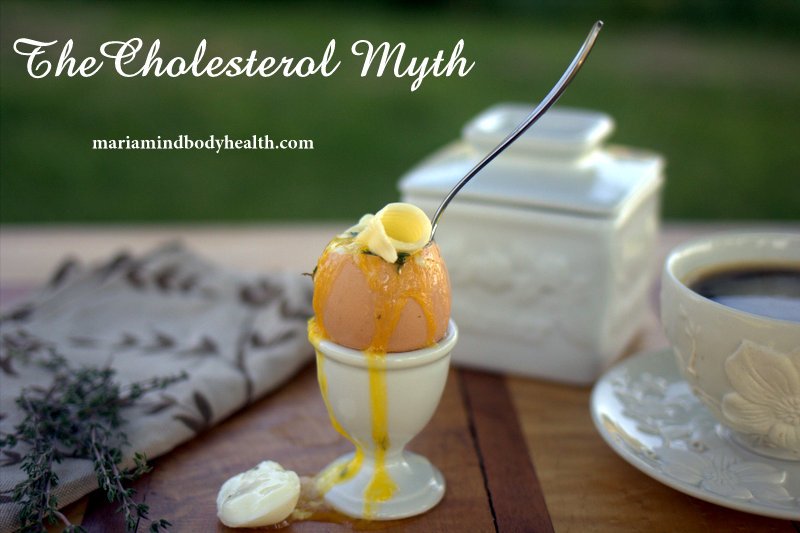
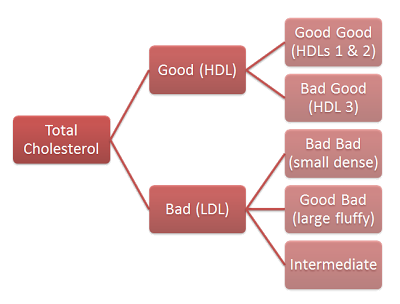
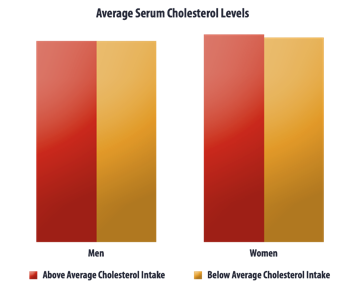
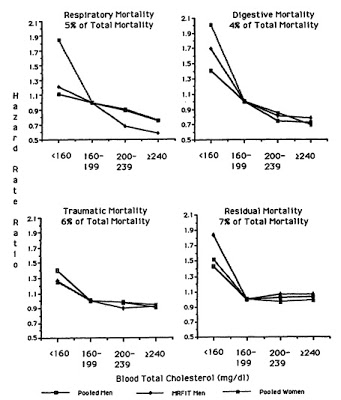

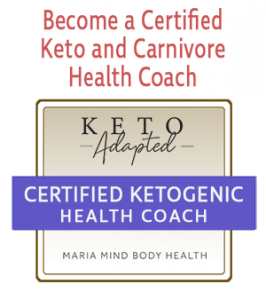

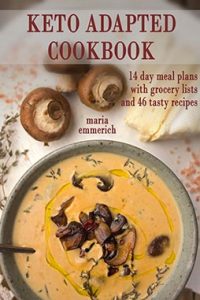

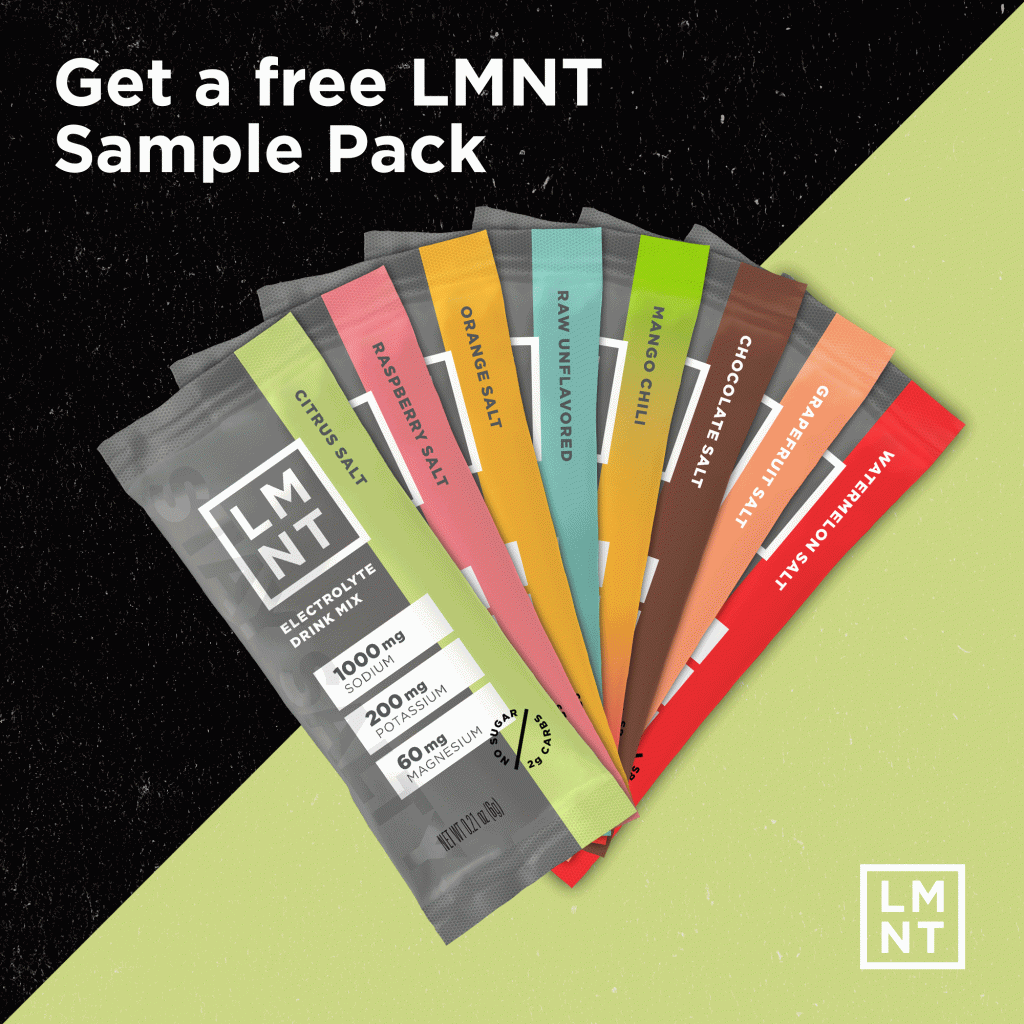



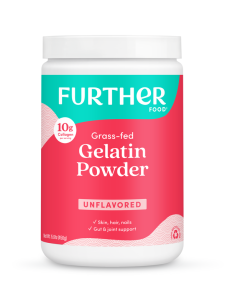

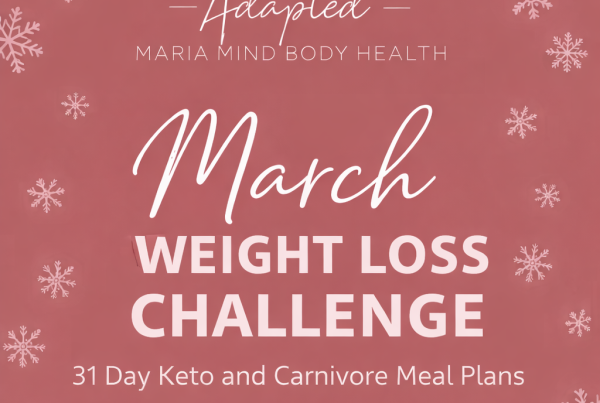

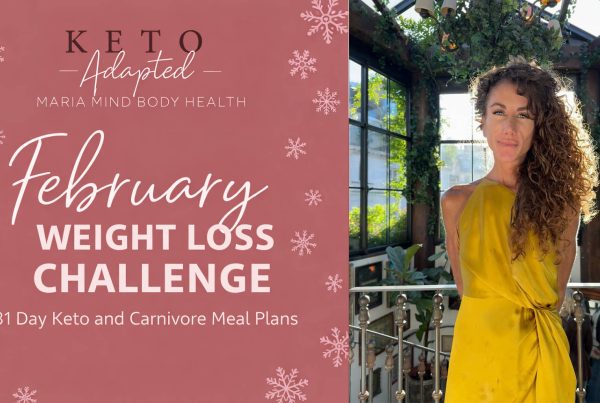
I have seen the stats on cholesterol and know there is no connection between high cholesterol and risk of heart disease and stroke. However, there is plenty of evidence that statins do decrease the risk of heart attack and stroke. I am not on them and planning to never get on them, but from what I have seen they do help. Why is the bigger question. Any ideas?
Please take a look at the above sources. There is clear evidence that when factoring in all factors (all death like cancer, etc. not just heart disease) death rates with statins and the same or worse than without. Qoting above “Finally, there is the recent J-LIT study of the Japanese Lipid Intervention Trial. This was a study of over 47,294 people over 6 years. In table 6 on page 1092, is states that the cardiovascular mortality in the lowest cholesterol group (under 160 mg/dl) was over 6 TIMES (6.23x) the mortality rate of the “normal” cholesterol group (200-219 mg/dl).” Most in the lowest cholesterol group were on statins.
You state in the post a headline of a myth that cholesterol and saturated fat cause high cholesterol in the blood, but the source you cite only states that cholesterol in food doesn’t cause high cholesterol in the blood. You DON’T contradict the idea that a diet high in saturated fats causes high cholesterol in the blood. I’d like you to address that point.
From the Framingham Heart Study, “In Framingham, Mass., the more saturated fat one ate, the more cholesterol one ate, the more calories one ate, the lower the person’s serum cholesterol. The opposite of what… Keys et al would predict”. 🙂
I added that above for clarity. 🙂
Looking forward to your next installment.
Thanks Craig,
My doctor keeps trying to put me on statins (TC 220, trig 90, hdl 96, ldl calculated 126) partly because of my diabetes. I totally refuse now because my first time (before I knew better)at just 10mg I had severe muscle pain and my memory went to he**. As soon as I tossed em all improved. But she still keeps bugging me everytime I go in for my doctor visit for my diabetes. Sheesh – she won’t give up. Thank you for this article and I look forward to next.
Laura
Thanks Laura! 🙂
Ok so my comment is completely off topic because I’m not sure where a good place to post it would be, but do you guys have any advice for feeding our pets better? I feel guilty that I’m working on feeding myself better and trying all of your delicious recipes, but feeding my dog the same old stuff. I try to avoid the pet foods that are mostly corn and wheat, but since more and more dogs and cats are obese and my vet recently told me that the leading cause of pet deaths in older pets is cancer, it seems like since pets suffer many of the same problems as humans maybe we could apply what we’ve learned about our diet and health to feeding our pets to make them healthier too. I’ve only just realized that my dogs favourite jerky treats are just wheat and sugar 🙁 I had expected the main ingredient to be meat. Anyways, you don’t have to respond here, but maybe you could dedicate a future blog post to the topic.
We work with our butcher at the local grocery. He gets us beef hearts (they grind them into hamburger) and we just put in small ziplocks and freeze. 🙂
Look online for homemade nutritious pet foods. There are several recipes on various sites and even on YouTube. Cats are obligate carnivores, which means they MUST eat a diet mostly of meat. Dogs are more tolerant of a wider variety of foods, being scavengers, and can even eat some vegetables. I bought an attachment for my KitchenAid mixer to grind meat and will buy chicken hearts and gizzards to grind, freeze and add to my cats’ food. I do have to add some bone meal and a few other things to the cats’ foods. Also, most petfood stores today carry grain free formulas that do not contain corn, soy or wheat, and no questionable chicken parts like feathers and toenails (or whatever you call them on a chicken – claws?).
Maria-
I just purchased your cookbook The Art of Healthy Eating and I’m exicted to make some of the recipes. I’m finding the sugar alternatives confusing. I keep reading that section but I’m still not clear.
Specifically, I saw that you said that you buy erythritol and stevia glycerite separately to keep costs down. So, I’m trying to figure out what to look for when you buy stevia glycerite. The link to your store doesn’t bring me to a product. Also, sometimes the recipe says stevia and sometimes it calls for stevia glycerite. Is there a difference?
Sorry if I’m posting in the wrong place. I haven’t done this before.
Thank you,
SEO
I always use stevia glycerite. It is less bitter than others. I get them all here:
http://astore.amazon.com/marisnutran05-20?_encoding=UTF8&node=13
I wish the average doctor knew this information. When I mentioned particle size to a GP, I got blank looks.
To add: I look forward to the next post on the subject.
It is sad. Thank you! 🙂
I know that you run marathons.. hopefully you didn’t go to Boston.. Please let us know that you and family are okay. post a little note ..please..your blog is a part of my everyday reading and low carb life-style and we need you.
Hugz
Jazzy
Yes, we were not there. Very sad indeed. My prayers go out to all in Boston.
Bravo! What a magnificent blog! Finally someone breaking down and dispelling all the myths that go along with the Lipid hypothesis! I shared this on my facebook timeline, hope that is ok. Thank you for the wonderful blog, looking forward to part 2!
Linda Thompson
Thank you Linda! 🙂
Hi Maria,
I have three of your books: Nutritious and delicious, The Art of eating healthy -Sweets, and the Art of eating healthy – Savoury. Could you please tell me which book is best for maintaining weight? Or is there a better book suited to me to buy? I love your recipes!! I just don’t know how much of what I should be eating. Do you have a meal plan/eating plan in any of your books?, or would it be better for me to have an email consultation with you? I’ve been struggling with my weight and health for years now, and even though I’m not over weight now, I’m having a bit of a hard time maintaining. I got to a stage where I couldn’t lose anymore weight, and I had no knowledge of you yet. I made the choice of doing the HCG diet and had ok results but I am having a bit of trouble stabilising now. I wish I came across your books earlier.
Thank you in advance for sharing your knowledge with me.
Warm Regards,
Kavita
I do create detailed meal plans for my clients. 🙂
http://marianutrition.com/pricing.html
Otherwise, I think all of those recipes are good. I would just go by your body if you are trying to maintain. If you are not hungry, don’t force yourself to eat (do an intermittent fast). My husband usually eats 2 meals a day during the week. If you are gaining a little, cut back on desserts. That type of thing should be pretty easy to maintain a weight. 🙂
Thank you for getting back to me! I also bought secrets to a healthy metabolism. And that’s really helping. LOVE your books!
What is a intermittent fast? Also is it ok to eat only two meals a day? I eat three meal a day plus two snacks…about 1500 cals a day. By the way I made your Spinach Artichoke Tart for dinner, it was delicious!!!
It is when you go at least 8-10 waking hours between meals. It can be very beneficial to our metabolisms. I have a section on it in my Metabolism book. My husband only eats 2 meals a day during the week. This is also a good way to intermittent fast. He eats breakfast about 10AM and another meal at 4PM. This is about 10 house (6 in the evening and 4 in the morning) between meals. 🙂
Thanks!
Do you have a lost on full fat vs nonfat dairy?
Hi, not sure what you are asking. Can you clarify?
Ooops sorry, type-o: I meant POST not lost… what I am looking for is information about full fat dairy, and Im wondering what your thoughts are regarding full fat vs non fat OR non dairy
Im really excited about all the information that Ive read so far! Im really looking forward to checking out your kids cook book. Although I cook nearly everything from scratch, we are searching for a”healthier, better way” and with 3 small boys we need help to take them along on are journey- so many other things we have tried leave me making two meals: one for us( often that we arent sure that we want to eat) and something for the kids. I so glad that all your ideas are centered on healthy, maintainable lifestyle. Cant wait to read more and start to implement some changes.
Thank you in advance
I have a whole section in my Metabolism book about dairy milk. 🙂
http://www.amazon.com/Secrets-Healthy-Metabolism-Maria-Emmerich/dp/0988512408/ref=sr_1_2?ie=UTF8&m=A51JBC26TWGDE&qid=1366897573&s=generic&sr=1-2
I bought some celtic sea salt, as you use that in all your recipes. The grains are a little bigger than what I’m used to (though still fairly small). Can I use it as is, or do I need to grind it further?
You could try that. I think it is ok courser too. 🙂
I’m re-reading this article and when I clicked on the link leading to:
http://people.bu.edu/sobieraj/nutrition/fat_science3_30_01.html
it mentions there’s malware on the site (it was probably hacked) but this page, should anyone want to see the article, is a web archive of Gary Taubes’ Article:
http://web.archive.org/web/20130530064747/http://people.bu.edu/sobieraj/nutrition/fat_science3_30_01.html
cheers!
Thanks!
I updated the link to a good one. 🙂
Thanks!
After reading the articles I decided last night was my last night of taking simvastatin. I was affected by most of the side effects the literature I read listed. Thank you!
I would pay close attention to your LDL-P number (less than 1,000 is ideal) and your Trygliceride to HDL ratio (2 or less is ideal) with a doctor who knows those numbers. Much better predictors of risk. 🙂
I just had a simple test done and I am kind of confused, these are the worst my numbers have been…. total is 230…hdl 52…tri 170…ldl 122….They have a note on my print out that says I may need cholesterol meds in the future…I am 6 foot 160 lbs and not sure if that factors in but I really do not want to take the meds, for one when looking at charts all my numbers are only borderline high…and two I have not been taking my supplements and eating my veggies like I should so I know they can be better…..but after reading this I don’t feel my numbers are that bad at all.
I would be more concerned about your inflammation markers like CRP. Also, try to get your triglyceride to HDL ratio as close to 1 or less as you can. I wouldn’t be concerned about those cholesterol numbers. 🙂
I did a search of “heart racing” on your blog and this particular blog post came up. I have been eating low-carb for about 4 weeks, and the past two days I have had issues with my heart racing intermittently. I remember this happening years ago when on a different low-carb (really no-carb) diet. Also it seems that within the last week my extra weight has started to come off more quickly. Is this normal? It was so bad in the middle of the night last night that it woke me up. I must be doing something wrong, but don’t know what. Maybe i’m eating too few carbs? Have you heard of this happening? I’m fairly healthy and workout hard 3x a week. Thank you so much! I love your blogs and info and have one of your books!!
Add Potassium.
http://astore.amazon.com/marisnutran05-20/detail/B0015C2ZI2
As you heal cells and the liver, you will lose weight faster. 🙂
Nights that my heart races are almost always coincidental with high salt. Our diet is low in salt but restaurant meals invariably send my heart racing. I also work out 5 days a week and have eliminated all process foods. I have a regurgitating mitral valve which might make me more sensitive to salt.
In addition, I have less problems when I remember to take zinc (20mg) and magnesium (500 mg) before going to bed. Adding potassium in addition to the magnesium and zinc also helps.
Can you tell me which supplement you recommend for CoQ10? I have been using Thorne Q-Best 50 but thought I would ask since I am coming to the end of the bottle. Thanks!
I like this one. 🙂
http://astore.amazon.com/marisnutran05-20/detail/B0013OSM34
Hi Darcie, not that you asked me, but I get Vitacost CoQ10 both in 100 mg, and 200 mg. I take 300 in the morning and 300 in the evening. I had extensive periodontal work, and I find that that higher dosage is great for me. It stopped all bleeding, and I have now been on that dosage for years. It, CoQ10 is also great for the heart. I keep checking with other sources as well, as CoQ10 can be pricey, my loyalty goes to my wallet, not to any specific vitamin company such as Vitacost.
My husband, age 71 and I have been following your diet and have your books. He went off the statin drugs last year – his cholesterol was 153 (HDL 36, LDL 89) and triglycerides 142. Now his cholesterol is 277 (HDL 37, LDL 182) and triglycerides are 289. Both is physician and cardiologist say get back on the statin drugs. His trainer says get off them and increase the krill oil intake. We work out 5 days a week – 2 with a trainer.
His estimated average glucose is 114, down from 117. He is off the metformin now. It seems very risky for him to not take the statins considering his LDL and cholesterol levels.
Anyone have experience or research for this?
My best advise is to get him on a ketogenic diet. I have had clients that had triglycerides go from 600 to 150 in 2 weeks. This lifestyle is really anti-inflammitory, the cause of coronary artery disease. Also, it raised HDL and lowers inflammation markers like A1C and CRP.
We are on that diet. Our carb intake is from vegetables and occasional berries. I have ordered your Keto-Adapted book to see what we are missing – we have two other books of yours. Will return in several weeks with an update.
I ordered the CoQ10 but what dosage do you recommend?
I would start with 200-400mg a day.
We are following the ketogenic diet but now my husband has a nasty bout of gout which apparently can be triggered by the diet. We are feeling very frustrated. Ideas?
Sorry to hear that. This diet does not cause gout. That is not true. I have some good info here: http://mariamindbodyhealth.com/babies-ketosis/
Excellent reading on gout. Thank you! The doctor is doing further testing. She thinks the podiatrist has misdiagnosed the foot problem. Meanwhile, we are staying on your diet and will update you when we find out more.
Thanks!
Maria, my husband was misdiagnosed by the podiatrist. Uric acid levels were fine. He is being treated for a bone infection, possibly acquired during an extensive dental procedure. He is taking your recommended Metagenics probiotics as well. We are staying with the ketogenic diet. No weight losses to report for me. Have you had postmenopausal women be successful losing weight on your dietary recommendations?
Yes, I have had many. Everyone is different and some take longer than others. Here is a testimony I received recently. “It took my body a bit longer to acclimate and begin the fat burning process but I did not give up. I kept hard at it, as well as exercising faithfully. By week 8 I began to see some changes. My clothes began to get loose, and by month 3 I had lost 20lbs. ” – Kari
Maria, I have been using your recipes to put together a keto-genenic diet for many months now (at least 8). My doctor wanted my cholesterol tested and came back with numbers that seem EXTREMELY high (noted by *: Cholesterol=359*,Triglycerides=58, HDL Cholesterol=59, LDL Cholesterol=288*, Cholesterol/HDL=6.1*, LDL/HDL RATIO=4.88*, VLDL Cholesterol (Calculated)=12
I don’t know if this makes a difference but I worked out (as I usually do) in the morning before the test, and I have been losing weight at about 1lb per week. Is that enough to throw this off THAT much? Should I get the VAP test to find out what’s up on the LDL side? FYI, using coconut oil is my oil of choice and eurythritol for sweetener. LOVE YOUR RECIPES!!!!!
First, read this 3 part series about cholesterol (3 posts total).
http://mariamindbodyhealth.com/the-cholesterol-myth/
Second, you should always wait at least 6 months after your weight has stabilized to test as you levels will be elevated when you are losing weight. Third, as the posts point out, a much better thing to look for are inflammation markers like A1C, CRP and Triglyceride to HDL ratio. Inflammation is what causes coronary artery disease. I only see trigs and HDL here, but what you want is trig/HDL ratio of 2 or less, ideally 1 or less. You are 1. So that is very good (and trigs of 58 is great!).
Thank you so much for your reply. I feel a tad better about my numbers, though I will still proceed with the particle size test to assuage my doctor who I am trying to win over with “The Way of Keto”. I think it will be a good marker for when I stabilize.
As a side note, many of the guys in my office are regularly referring to your blog, and we are planning a “keto potluck Friday” where everyone picks a recipe to sample. I am now trying to get my wife on-board to help with her fibro and migraines. Thank you for your effort and involvement!!
That is awesome! Your wife would see a lot of relief eating this way. As for numbers, next time look for CRP (and A1c if you can). These are better inflammation markers. You want CRP to be less than 2 (ideally less than 1). That will tell you your inflammation is low.
So if my 17 year old daughter has cholesterol count of 203 and bad cholesterol is 128, should I do anything? She eats high protein, high fat, low carb, no sugar, no wheat or grains, with the exception of one meal per week she “cheats” and gets to eat like most 17 year olds. 🙂
I don’t think there is anything wrong with those numbers, no.
“In our stressful modern lives we consume a lot of these hormones which can lead to Adrenal Fatigue. ”
What does that mean? That sentence does not make sense…
Stress increases our use of hormones which can cause adrenal fatigue.
It does not make sense when the premise behind cholesterol is that it MAKES hormones – so we NEED it to support adrenal health.
Very interesting article – I hope I can find part 2.
I won’t use statins myself and when my cholesterol was high (7.5 mmol/L)and the doctor wanted to put me on statins with dire warnings of what could happen if I didn’t use them, I said i could reduce it with diet. He disagreed but allowed 6 months before a new test. In just under 6 months – with minor care on foods) my level had dropped to 6.5. Interestingly, my cholesterol has always been slightly above ‘the norm’ and 2. I had had surgery only a couple of months before.
I am a little puzzled however – after following through the article – near the end you state ‘In other words, men with cholesterol levels above 240 mg/dl tended to die prematurely from heart disease’ which appears to contradict the rest of the article and agree with what the doctor said?
Part 2 is linked at the bottom of the post. 🙂
As total cholesterol goes up above 240, the risk does increase a little. But the point here (and in the successive posts) is that cholesterol is not the enemy, inflammation is. If you cholesterol is elevated, it is because your inflammation is high and the cholesterol is just there to fight the inflammation. So it is the high inflammation causing the increased risk, not the high cholesterol.